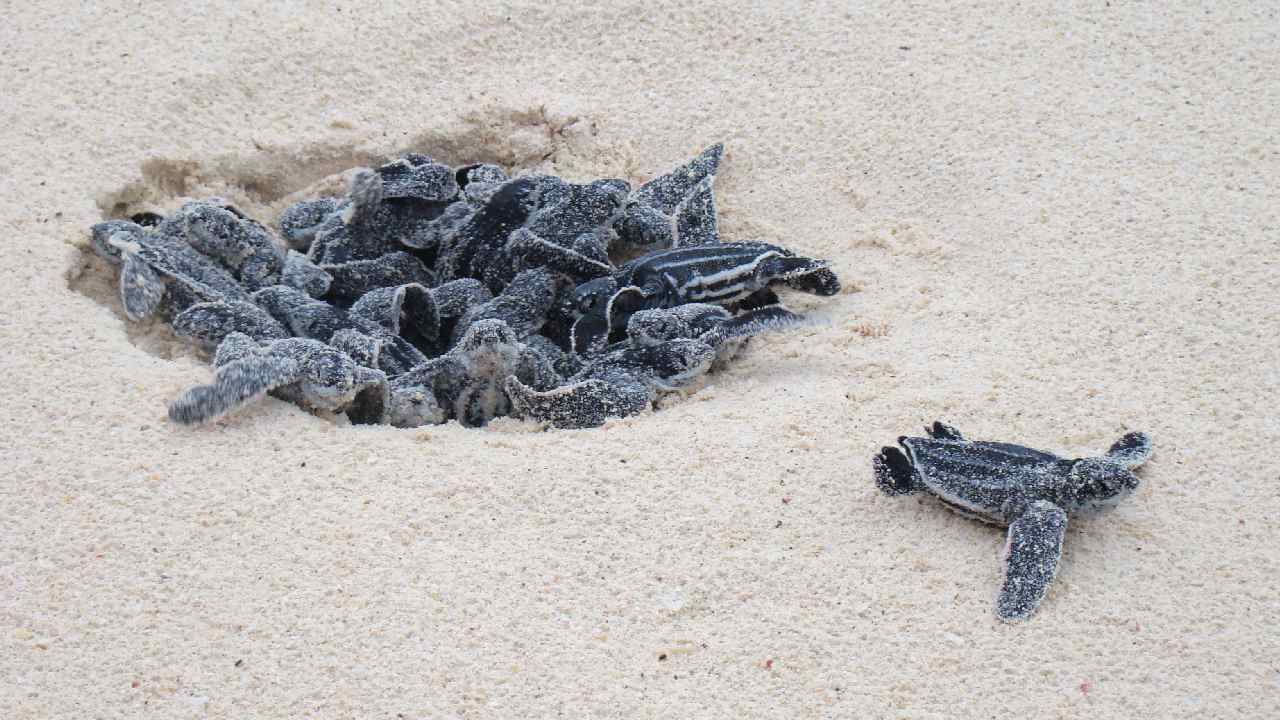When sea turtles lay their eggs, the temperature of the sand determines whether the egg develops into a male or female turtle.
But the planet is warming, and that means more turtles are being born as females in nesting places like Florida.
“Scientists that are studying sea turtle hatchlings and eggs have found no boy sea turtles, so only female sea turtles for the past four years,” Bette Zirkelbach, who manages a turtle rescue operation in the Florida Keys, told Reuters.
Sea turtles live in the ocean, but they come to beaches around the world to lay their eggs in the sand.
When the sand is cooler, more of those eggs become males — and when it’s warmer, more of the eggs become females.
The precise temperature at which the change occurs may differ between species and locations, but at around 29 degrees Celsius (84 degrees Fahrenheit) you’ll often see a 50/50 split between male and female hatchlings.
However, the climate crisis is causing temperatures to rise around the world and the oceans are overflowing with female turtles.
In 2019, the Miami Herald reported that a South Florida scientist had documented only female calves in seven of the past 10 years.
These kinds of results are showing up elsewhere, too. A 2018 paper found that while cooler beaches in Australia’s Great Barrier Reef had between 65-69 per cent female turtles, warmer beaches in the reef had upwards of 90 per cent female turtles.
According to a 2014 study, in Cape Verde, an island nation in West Africa, about 70% of female turtles hatch on light-colored sand beaches, while about 93% of female turtles live on dark-coloured sand beaches. Darker colors absorb more energy from the sun heating them.
This process is called “feminization” — and some scientists warn that it could be a long-term threat to sea turtles as the climate crisis pushes temperatures even higher, as both males and females are needed for the species to reproduce.
The same issue may also threaten other reptiles whose eggs’ sex is based on temperature, like alligators.





























